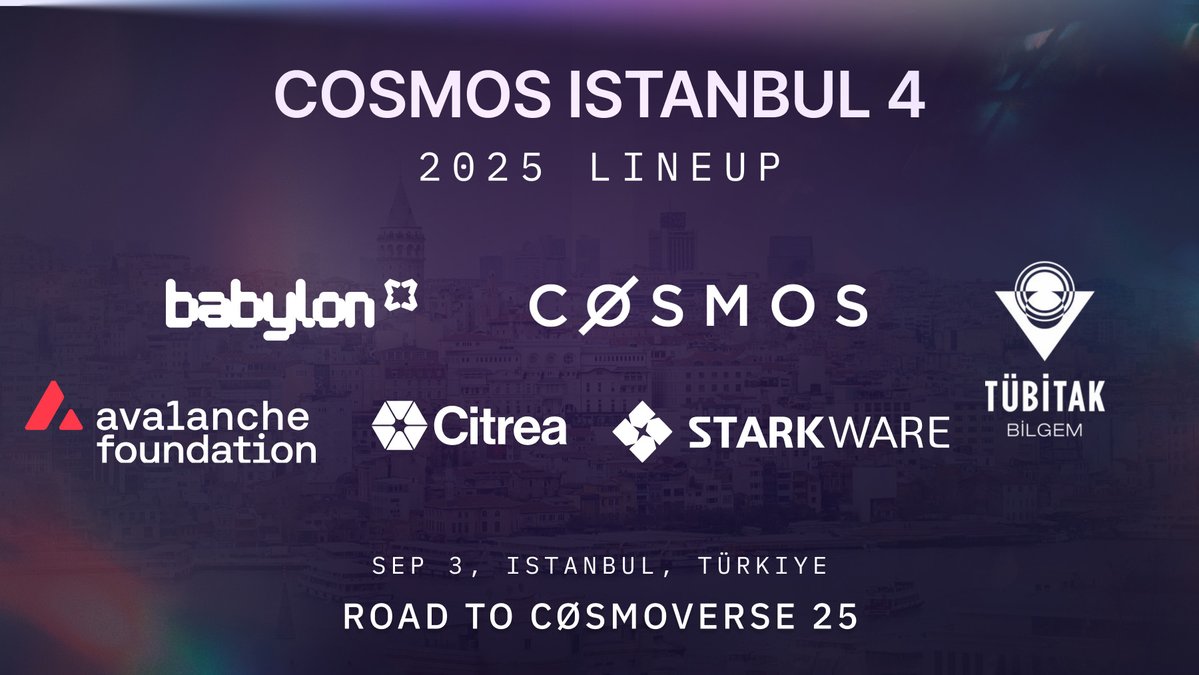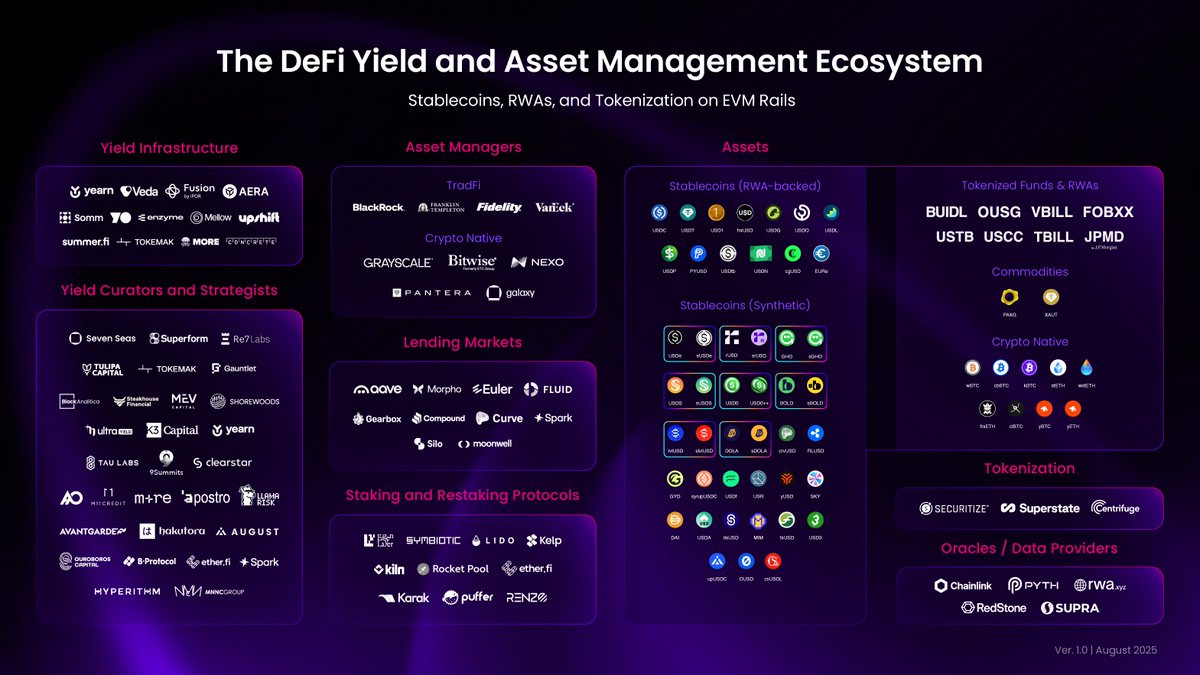Cosmos price
in USDCheck your spelling or try another.


About Cosmos
Cosmos’s price performance
Cosmos in the news

Cosmos native token encounters significant trading volatility as institutional adoption accelerates across decentralized finance platforms.

The Cosmos ecosystem token saw steep intraday losses before staging a strong final-hour recovery, breaking key resistance levels and signaling renewed institutional interest.

Cosmos token breaks resistance on heavy volume after Coinbase expands native network support, but late-session selloff erases gains and sets new resistance zone.

Coinbase adds dYdX native network integration while geopolitical tensions drive investors toward decentralized alternatives.

Cosmos’ ATOM token rallies after a sharp dip, fueled by heavy trading volume and renewed institutional interest following Coinbase’s addition of COSMOSDYDX to its listing roadmap.

Cosmos’ ATOM token rebounds sharply from $4.18 lows, forming a new support base amid strong institutional buying.
Cosmos on socials




Guides

Cosmos on OKX Learn




Cosmos FAQ
Cosmos is an interoperable network designed to connect various independent blockchains, facilitating communication and collaboration between them. It aims to address the blockchain industry's challenges of scalability and interoperability.
Interoperability allows for different blockchains to communicate and share information. It bridges the gap between isolated blockchains, enabling more integrated and versatile applications and solutions.
Easily buy ATOM tokens on the OKX cryptocurrency platform. Available trading pairs in the OKX spot trading terminal include ATOM/BTC, ATOM/ETH, ATOM/USDT, and ATOM/USDC.
You can also buy ATOM with over 99 fiat currencies by selecting the "Express buy" option. Other popular crypto tokens, such as Bitcoin (BTC), Tether (USDT), and USD Coin (USDC), are also available.
Alternatively, you can swap your existing cryptocurrencies, including XRP (XRP), Cardano (ADA), Solana (SOL), and Chainlink (LINK), for ATOM with zero fees and no price slippage by using OKX Convert.
To view the estimated real-time conversion prices between fiat currencies, such as the USD, EUR, GBP, and others, into ATOM, visit the OKX Crypto Converter Calculator. OKX's high-liquidity crypto exchange ensures the best prices for your crypto purchases.
Dive deeper into Cosmos
Cosmos is a decentralized hub bridging multiple blockchains using Byzantine Fault Tolerance (BFT) consensus algorithms like Tendermint. This pioneering platform not only aspires to knit together diverse blockchains but also to enhance their collective functionality. With a unified vision, the Cosmos team aims to break down barriers, envisioning a cohesive blockchain realm, all under the Cosmos umbrella.
What Is Cosmos
Cosmos, often called the “internet of blockchains,” seeks to revolutionize the blockchain industry by addressing major challenges like scalability and interoperability. It does so by fostering communication between distributed ledgers without relying on a centralized server.
The Cosmos ecosystem comprises application-specific sidechains named “Zones.” These Zones are interconnected through the Cosmos Hub, similar to Polkadot's parachain model.
ATOM, its native token, facilitates governance voting and strengthens security through staking.
The Cosmos team
Cosmos was developed by the Tendermint team. Its co-founders, Jae Kwon, the mastermind behind the Tendermint consensus algorithm, and Ethan Buchman, have rallied a team of adept blockchain developers, cryptographers, and computer scientists.
How does Cosmos work
Cosmos utilizes a "hub and spoke" architecture, where the Cosmos Hub acts as the central hub, and various independent blockchains, referred to as “Spokes,” connect to it. These independent blockchains, known as Zones, leverage the Tendermint consensus protocol and communicate with the hub using the Inter-Blockchain Communication (IBC) protocol.
In contrast to many platforms that depend on smart contracts for inter-chain interactions, Cosmos introduces an open-source tool that allows developers to design and develop decentralized blockchain applications. Additionally, Cosmos offers software development kits (SDKs) to streamline the creation of these applications.
ATOM tokenomics
ATOM is the native token of the Cosmos network. It underpins the network's Proof of Stake (PoS) consensus model, with validators and delegators staking ATOM tokens to bolster security and partake in consensus. Moreover, ATOM holders possess governance rights, influencing the trajectory of the Cosmos network through their votes. ATOM can also be used to pay transaction fees or staked for additional rewards. An annual inflation rate of 7 percent to 20 percent incentivizes ATOM holders to stake their tokens.
Distribution of ATOM
ATOM was initially distributed as follows:
- 35 percent earmarked for staking rewards
- 30 percent disseminated to partner exchanges to ensure liquidity
- 10 percent set aside for the Interchain Foundation
- 10 percent remains with Tendermint
- 15 percent was allocated to the team and investors
Disclaimer
OKX does not provide investment or asset recommendations. You should carefully consider whether trading or holding digital assets is suitable for you in light of your financial condition. Please consult your legal/tax/investment professional for questions about your specific circumstances. For further details, please refer to our Terms of Use and Risk Warning. By using the third-party website ("TPW"), you accept that any use of the TPW will be subject to and governed by the terms of the TPW. Unless expressly stated in writing, OKX and its affiliates (“OKX”) are not in any way associated with the owner or operator of the TPW. You agree that OKX is not responsible or liable for any loss, damage and any other consequences arising from your use of the TPW. Please be aware that using a TPW may result in a loss or diminution of your assets. Product may not be available in all jurisdictions.




































